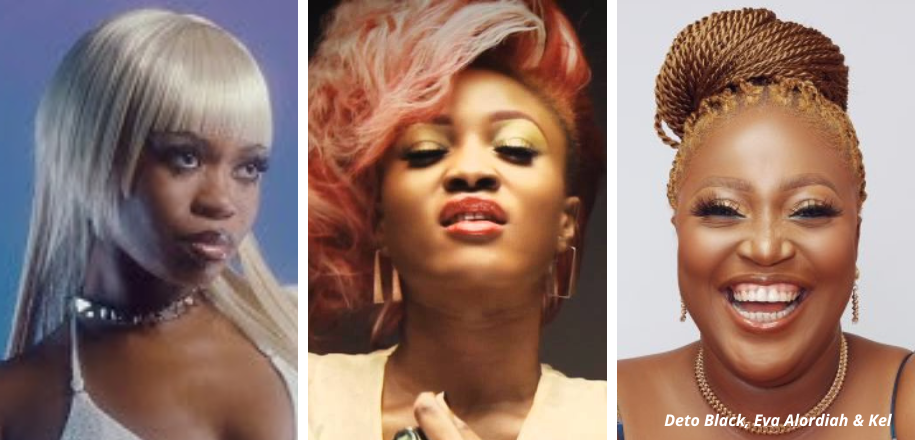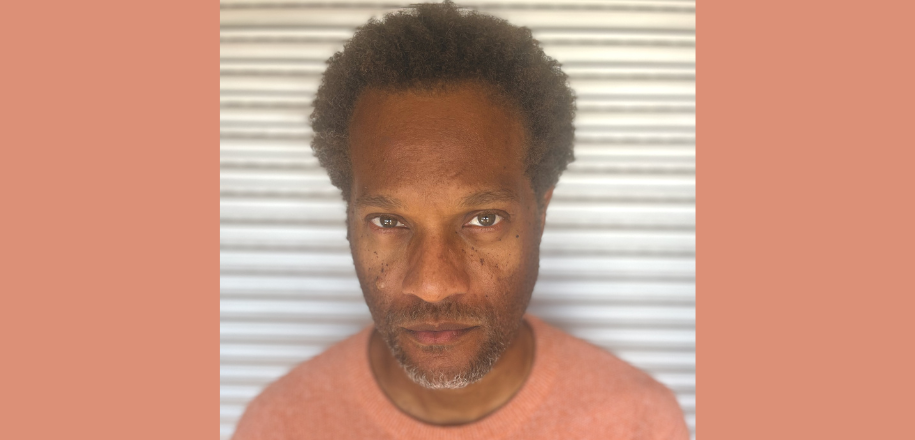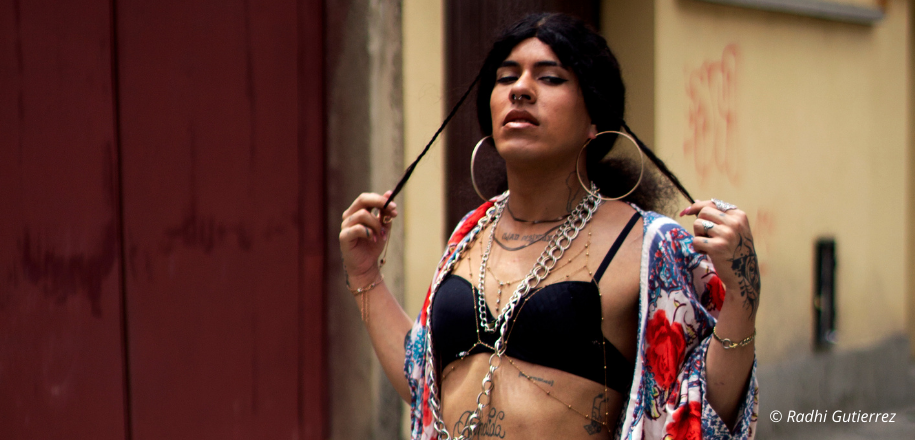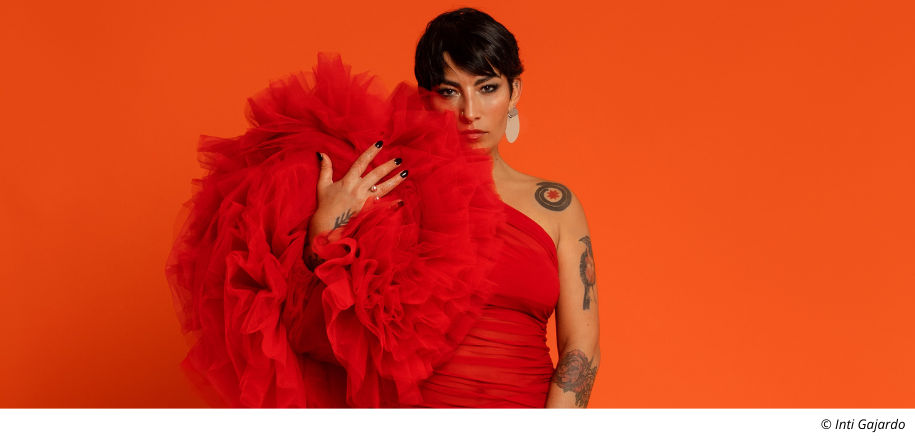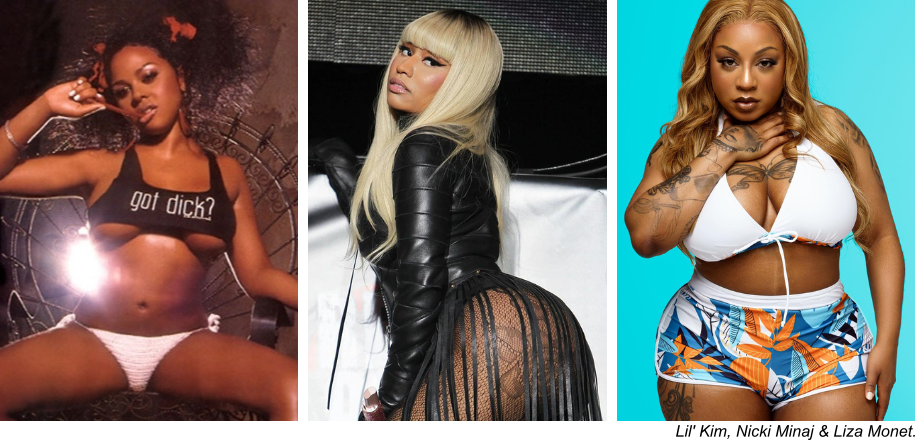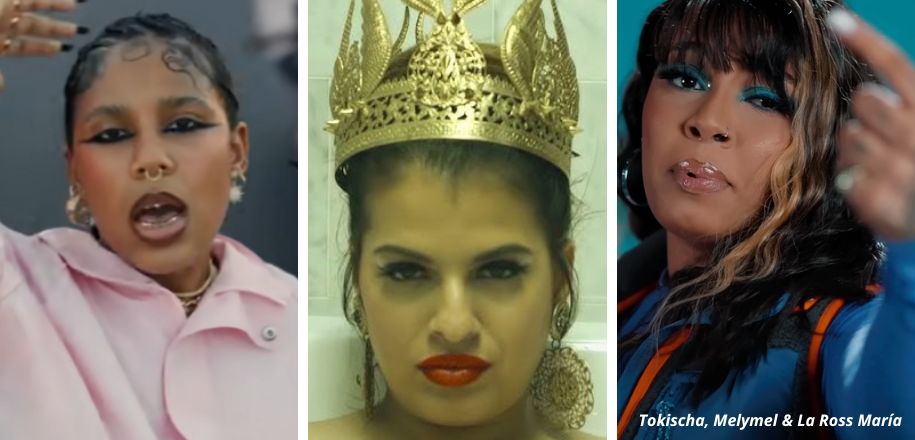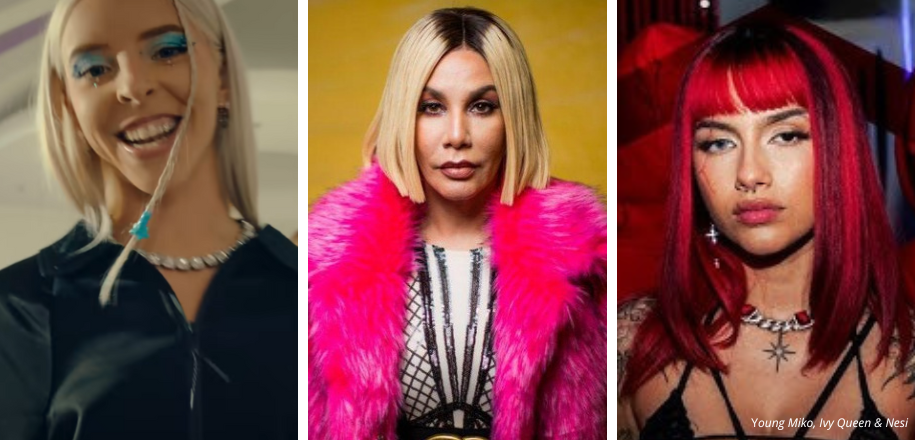Although less visible than male rappers, women have been part of the Nigerian rap scene for over thirty-five years.
Among them are Weird MC, active since 1990, who raps in English and Yoruba, Sasha P, active since the early 2000s and nicknamed the “First Lady of Nigerian Hip Hop”, and Mo’Cheddah, who gained recognition in 2010 with her first single “If You Want Me”.
These pioneers have paved the way for other artists who challenge stereotypes and use their music to address societal issues, advocating for women’s rights, and reshaping the music scene in Nigeria and worldwide.
Here are 10 female rappers you should be following, selected from the 33 Nigerian artists listed on Madame Rap.
Eva Alordiah
Known for her incisive lyrics, Eva Alordiah has carved out a place among the country’s most respected female rappers thanks to hits like “High” and “I Done Dit It”. Beyond music, she stands out in fashion and gives lectures, using her fame to inspire young women to embrace their individuality and pursue their dreams.
Muna
Rapper, singer-songwriter, model, and TV presenter, Muna (real name Munachi Gail Teresa Nwankwo) gained recognition in 2010 with singles “I Feel Real” and “Killer Queen”. Her lyrics, which often address women’s empowerment and self-confidence, resonate with the younger generation. She also participated in BET Nigeria cyphers in 2011 and 2012 and was a judge for the rap contest “Nokia Don’t Break The Beat”.
Sasha P
Known as the “First Lady of Nigerian Hip Hop”, Sasha P started with Trybe Records in 2001, then released the album First Lady in 2008. The track “Adara” earned her the “Best Female Artist” award at the 2009 Women in Entertainment Awards in the UK. In 2010, she became the first Nigerian artist to win the “Best Female Artist” award at the MTV Africa Music Awards (MAMA). Although she has taken a break since 2013, she remains a key figure in the national rap scene.
Kel
Originally from Umudike Umuahia in Abia State, Kel is known for her hits “Wa Wa Alright”, “You Too Fine”, and “Give It To Me”. In 2007, she caught the attention of video director Clarence Peters, who signed her to his label, Capital Hill Music. After her first album The Investment in 2009, she took a musical break due to a conflict with her management. She returned in 2014 and confirmed her status as a reference on the Nigerian scene, with her music blending rap, afro-pop, and R&B.
SixSaidIt
Born in London, SixSaidIt moved to Nigeria at the age of 4, then to Atlanta, Los Angeles, and New York. Due to her cosmopolitan background, the rapper-singer-songwriter incorporates many cultural influences into her music. Since the beginning of her career in 2019, she has been committed to showcasing this diversity by offering an “out-of-the-box” style that appeals to a wide audience.
Phlow
Phlow started rapping during her studies and was part of a gospel rap group. Equally comfortable in rap and singing, the versatile artist began collaborating with Str8Buttah productions and participates in the weekly online show “Don’t Drop The Mic”. Her music often explores themes such as love, self-discovery, and resilience.
Deto Black
Based in Lagos, Deto Black is one of the leading figures of the Alté movement. Nigerian slang for “alternative”, this genre fuses elements of afrobeat, pop, rap, R&B, soul, and dancehall. The artist made her first appearance in 2020 with a feature on Odunsi’s single “Body Count” alongside Amaarae and Gigi Atlantis. Her lyrics, which question societal norms and celebrate individuality, make her a major voice for underrepresented and marginalized people.
Moyoswrld
Rapper, singer, and songwriter, Moyoswrld describes her music as “afro-rage”. Her style, which encompasses rap, punk, and afrofusion, makes her a key figure in the alternative scene. Thanks to this unique universe, a constant process of visual and sonic experimentation, and a great ability to tell stories, the artist has managed to build a solid fan community.
SGaWd
Also known as Seddy, SGaWD was destined for a career as a lawyer in Miami before turning to music. She released her first track “Feel Right” in 2020 and collaborated extensively during the pandemic. Versatile, she navigates rap, dancehall, and Alté, and her lyrics freely address themes such as self-love and women’s independence.
Deela
Originally from Lagos, Deela grew up in Nigeria before moving to the UK. She started making music in 2020, heavily influenced by trap, afrobeat, and early 2000s-2010s rap. Between ego trip on the track “Talkin’ Shit” and an ode to singlehood with the song “Get A Grip”, her uncompromising lyrics deal with sexuality and power and celebrate the freedom to be who you want to be.

